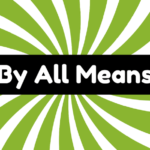The phrase "tick off" encompasses multiple meanings, primarily related to marking tasks as completed or expressing annoyance. Originating in the 1800s for sales transactions, its figurative use surfaced in the early 1900s, particularly in letters by poet Wilfred Owen. A 1915 instance of "ticked-off" lent the term wider popularity by the 1960s. Commonly employed in contexts like task lists or attendance, it reveals both organizational and emotional facets of human behavior. As its relevance persists in today's fast-paced society for managing duties and expressing dissatisfaction, understanding its use enriches our communication skills and awareness of language dynamics.
Synonyms
In examining the term "tick off," several synonyms emerge that encapsulate its varied meanings. Understanding these alternatives enhances comprehension, particularly in contexts involving task completion and emotional expression. The following points illustrate notable synonyms:
- Mark off – Often used to denote the completion of tasks on a list.
- Irritate – Refers to provoking annoyance or frustration in another person.
- Displease – Captures the sentiment of dissatisfaction towards someone's actions.
- Reprimand – Involves expressing disapproval or chastising someone for their behavior.
These synonyms underscore the multifaceted nature of "tick off," highlighting its role in both the practical domain of organizing tasks and the emotional landscape of interpersonal interactions. Recognizing these alternatives can foster clearer communication and enhance understanding in various scenarios.
Example of Sentences
Examples of sentences illustrating the phrase "tick off" reveal its versatility in both task management and interpersonal interactions. It captures emotional reactions and reflects societal influences effectively. Consider these scenarios:
- "Before the meeting, please tick off the completed tasks on your list."
- "Teachers tick off student names to foster attendance and accountability."
- "Her dismissive comments really tick off many in the team."
- "Feeling ticked off by my friend's tardiness, I expressed my frustration."
These examples not only highlight the practical application of the phrase but also emphasize how expressions of annoyance or satisfaction can convey deeper societal norms. Ultimately, understanding "tick off" enriches our communication within various contexts, unearthing underlying emotional dynamics.
Origin
Tracing the origin of the phrase "tick off" reveals its historical evolution and nuanced meanings. Initially, its usage can be traced to the 1800s, when "tick" referred to marking completed items in sales transactions. This practical application represents a clear example of historical usage. By the early 1900s, the phrase adopted a figurative meaning, as evidenced in the letters of poet Wilfred Owen. The term "ticked-off" achieved its first recorded use in 1915, gaining prominence by the 1960s. Despite speculative links to the concept of a "ticking" bomb, it is essential to recognize the linguistic evolution of "tick off." This journey reflects changing societal attitudes toward frustration and the dynamic interplay of language over time, demanding a discerning eye from modern readers.
Collocations
Utilizing the phrase "tick off" in various contexts reveals numerous common collocations that enhance both meaning and clarity. Language learners and professionals alike can benefit from understanding these tick off expressions and their variations. Below is a concise list of collocations that illustrate the versatility of "tick off":
- Tick off items on a list.
- Tick off names for attendance.
- Tick off customers with poor service.
- Tick off tasks for project management.
These collocations highlight how "tick off" can be employed in both organizational and emotional contexts, emphasizing frustration or completion. Recognizing these distinctions fosters clearer communication, enabling users to navigate different scenarios effectively. Ultimately, context is vital to grasp the intended meaning behind tick off variations, avoiding potential misinterpretations.
How to Use in Everyday Language
In daily communication, the phrase "tick off" serves various purposes, helping to express both completion of tasks and feelings of annoyance. In the area of task management, one might say, "I need to tick off these items before the meeting," indicating an organized approach. This practical usage emphasizes progress and efficiency. Conversely, "tick off" also conveys emotional expression; when someone says, "That comment really ticks me off," it succinctly communicates irritation. While convenient, relying on colloquialisms like "tick off" may obscure feelings or intentions. As a result, it's vital to evaluate context and audience. Striking the right balance between clarity and informality, this phrase can enhance communication but should be applied thoughtfully to avoid misunderstandings.
Why Is It Still Relevant Today?
Reflecting the complexities of modern life, the phrase "tick off" remains relevant today due to its dual functionality in both task management and emotional expression. In a fast-paced world, marking completed tasks clearly resonates as a means to boost productivity. Furthermore, its cultural significance lies in the straightforward way it conveys frustration or annoyance, capturing sentiments that often go unspoken. This versatility makes "tick off" a staple in everyday language, appealing to both younger and older generations. As society navigates a complex landscape of responsibilities and emotions, understanding and utilizing such expressions can enhance communication. Consequently, the continued usage of "tick off" serves as a reminder of our shared human experiences and the importance of articulating both tasks and feelings effectively.
Frequently Asked Questions
How Did the Phrase "Tick Off" Evolve Over Time?
The phrase evolution of "tick off" illustrates a notable linguistic shift, changing from task completion in the 1800s to expressing frustration in modern contexts, reflecting broader societal attitudes and communication dynamics over time.
Are There Cultural Variations in Using "Tick Off"?
Cultural context shapes the use of idiomatic expressions like "tick off," where interpretations vary drastically. Understanding these nuances not only enhances communication but also fosters innovation by bridging diverse perspectives and emotional reactions across regions.
What Are Common Misunderstandings of "Tick Off"?
Common misunderstandings of "tick off" often stem from misinterpretation examples in media, where its dual meanings—task completion and causing annoyance—can lead to confusion. Clarity in context is essential for effective communication and understanding.
Can "Tick Off" Be Used in Formal Contexts?
While "tick off" conveys informality in casual dialogue, its adaptability allows for usage in professional contexts when denoting task completion. However, it may pose challenges in formal communication, where precision and clarity are paramount.
How Has Technology Influenced the Usage of "Tick Off"?
Technological advancements, particularly in digital communication, have broadened the usage of "tick off." This evolution highlights its emotional impact, allowing for nuanced expressions of frustration or task completion, while adapting to contemporary contexts of interaction.







